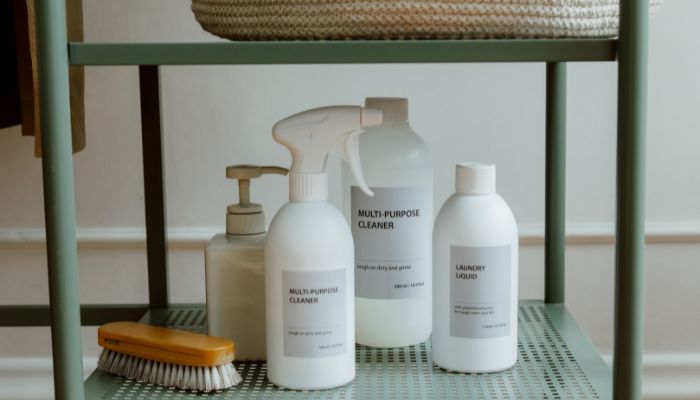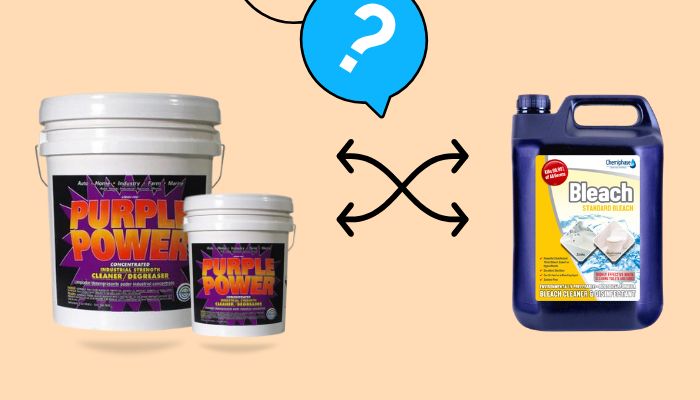Cleaning is an essential part of maintaining a healthy home, but did you know that some of the cleaning products you use could actually be harming your health? Many common cleaning products contain chemicals that can irritate your skin, eyes, and lungs, and some are even linked to more serious health problems.
In this article below, we will take a closer look at some of the most common cleaning products that could be hurting your health, and what you can do to minimize your exposure to these harmful chemicals.
Top 08 Harmful Cleaning Products!

01. Antibacterial Soaps and Cleaners
Antibacterial soaps and cleaners are marketed as a way to kill germs and bacteria, but these products may be doing more harm than good. Many antibacterial products contain a chemical called triclosan, which has been linked to hormone disruption and antibiotic resistance.
Additionally, the overuse of antibacterial products can lead to the development of superbugs, which are bacteria that are resistant to multiple types of antibiotics.
02. Air Fresheners
Air fresheners help to mask unpleasant odors, but these products can also be harmful to your health. Many air fresheners contain chemicals called phthalates, which are known to disrupt hormone production and may also be linked to asthma and allergies.
Some air fresheners contain volatile organic compounds (VOCs), which can irritate your eyes, nose, and throat, and may also be linked to cancer.
03. Bleach
Bleach is a powerful disinfectant that is commonly used to clean and sanitize surfaces, but this product can also be harmful to your health. Like, if you mix Purple power and bleach it will be a harmful chemical. Bleach can also produce harmful fumes when mixed with other chemicals.
04. Oven Cleaners
Oven cleaners are designed to remove grease and grime from your oven, but these products can also be harmful to your health. Many oven cleaners contain chemicals such as sodium hydroxide and potassium hydroxide, which can irritate your skin and eyes and can be harmful if ingested.
05. Dishwashing Detergent
Dishwashing detergent is essential for keeping your dishes clean, but some types of detergent can be harmful to your health. Many dishwashing detergents contain phosphates, which can be harmful to the environment and can also cause skin irritation and respiratory problems.
06. Carpet/Rug Cleaners
You may use carpet cleaners to remove stains and odors from your carpets, but many of these products contain harmful chemicals such as perchloroethylene and naphthalene. These chemicals can irritate your nose, and throat, and may also be linked to more serious health problems such as cancer and respiratory issues.
07. Drain Cleaners
Drain cleaners are designed to unclog your drains, but these products can also be harmful to your health. Many drain cleaners contain harsh chemicals such as sodium hydroxide and sulfuric acid, which can cause severe burns if they come into contact with your skin or eyes.
08. Glass Cleaners
Glass cleaners are designed to leave your mirrors and windows sparkling clean, but some of these products contain harmful chemicals such as ammonia and butoxyethanol. These chemicals can irritate your respiratory system, and may also be linked to more serious health problems such as cancer.
Related article: Seasonal window and gutter cleaning!
Tips to Avoid Harmful Chemicals in Cleaning Products
To minimize your exposure to harmful chemicals in commercial cleaning products, as a cleaning expert I suggest you consider taking the following steps:
- Read labels carefully: Look for cleaning products that are labeled as non-toxic, eco-friendly, or natural. Avoid products that contain harsh chemicals or are labeled as toxic or poisonous.
- Use alternatives: Consider using natural cleaning products such as vinegar, baking soda, or lemon juice. These alternatives are often effective and much safer for your health and the environment.
- Use gloves and protective gear: When using cleaning products, always wear gloves and protective gear to minimize your exposure to harmful chemicals. Additionally, make sure to use cleaning products in a well-ventilated area.
- Dispose of products properly: When disposing of cleaning products, make sure to follow the manufacturer’s instructions and dispose of them in a safe and responsible manner.
- Avoid mixing chemicals: Never mix different cleaning products together, as this can create dangerous and harmful chemical reactions.
By following these simple and quick steps, you can help protect your health and the environment from the harmful chemicals often found in common cleaning products.
Conclusion
While cleaning is important for maintaining a healthy home, it’s crucial to be aware of the potential harm that some cleaning products can cause. Many common cleaning products contain chemicals that can cause skin irritation, respiratory problems, and even more serious health issues.
By being mindful of the products you use and taking steps to minimize your exposure to harmful chemicals, you can protect your health and the environment.


![How to Clean PS5 Controller in 2023? [Get Your Game On!]](https://bestcleaningtools.com/wp-content/uploads/2023/04/13.jpg)
![How to Use Cataclean? [Cleaner Burning, Better Driving]](https://bestcleaningtools.com/wp-content/uploads/2023/04/10.jpg)